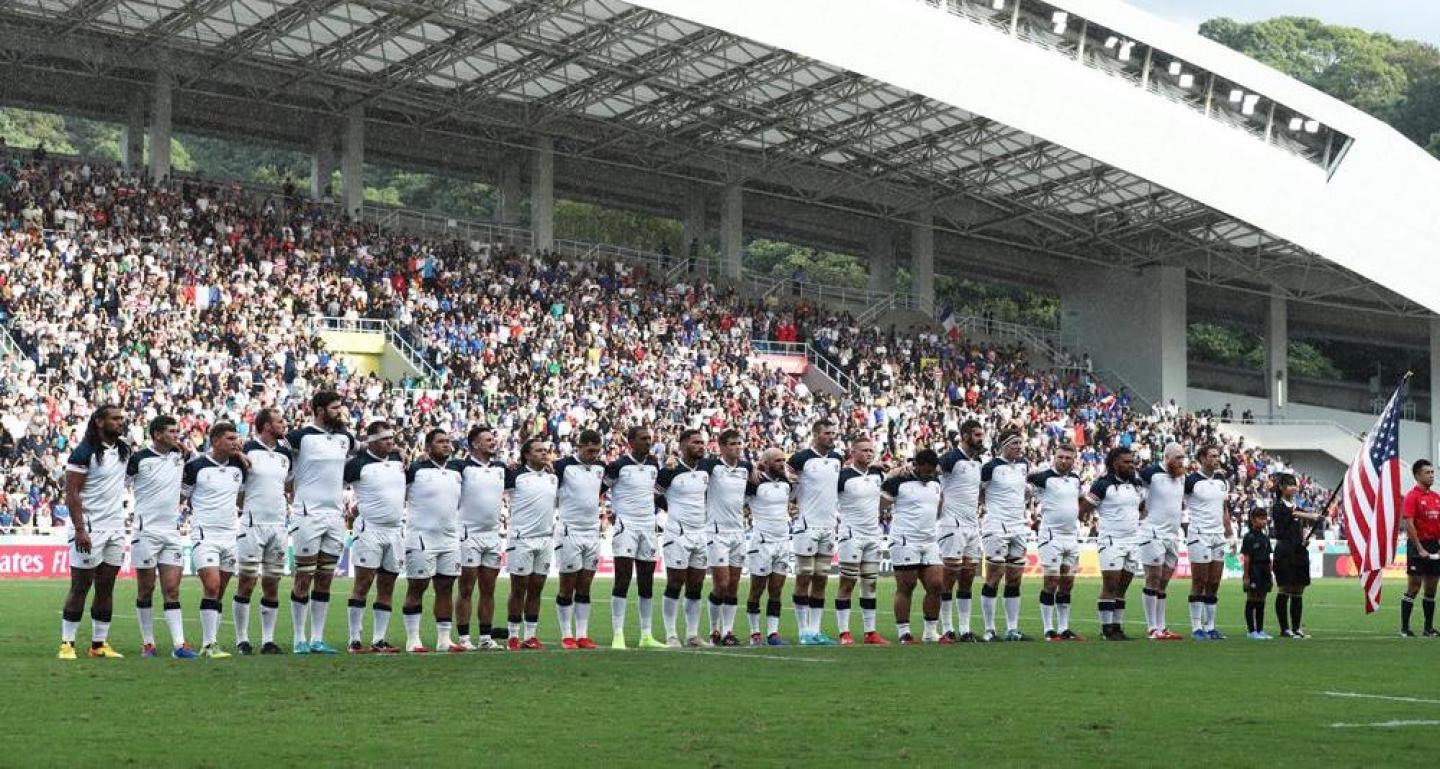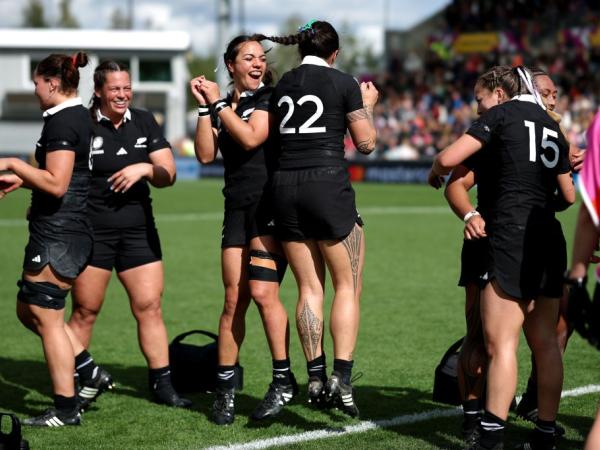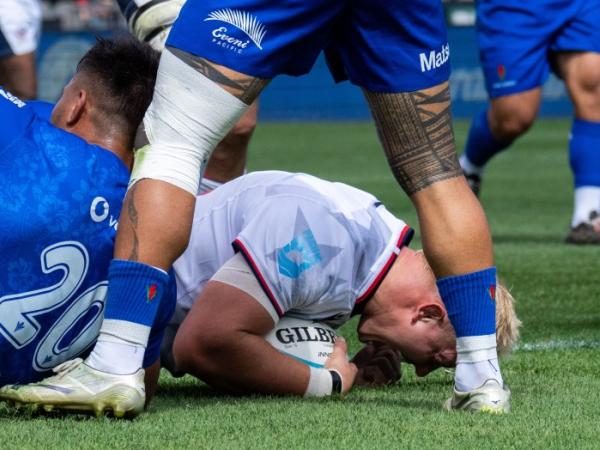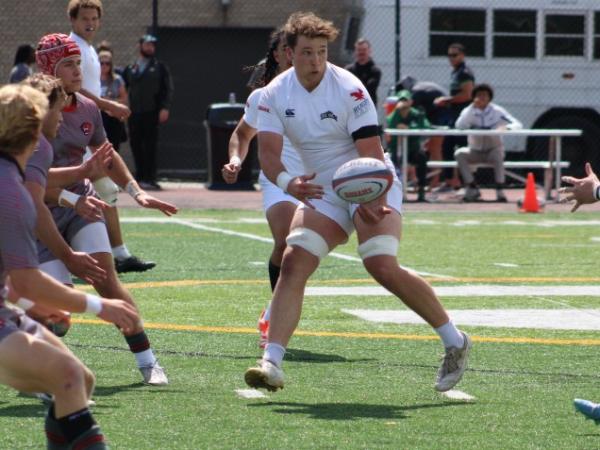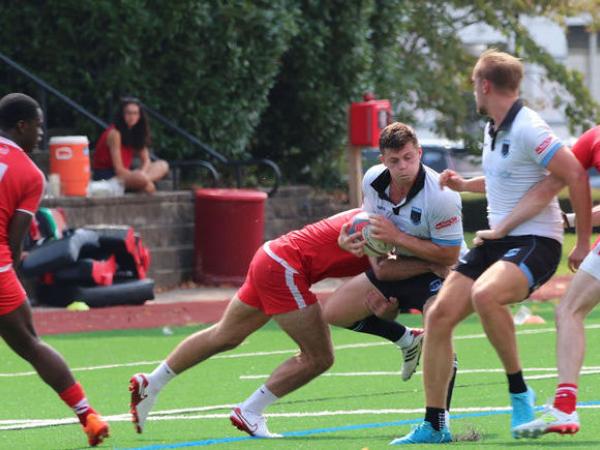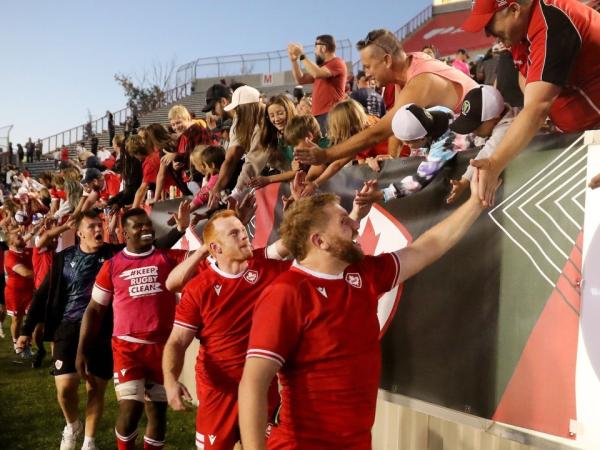This is an Opinion Column by GRR Editor Alex Goff — So it seems that USA Rugby is pretty serious about bidding for the Men’s 15s Rugby World Cup for either 2027 or 2031.
That seems far enough in the future that proper plans can be made, and enough deals can be struck for venues. But as we’ve said before, the timing of the RWC is such that the event would have to battle pro football, college football, Major League Baseball, and soccer for the right venues. It can be done, but would probably need a great deal of flexibility — a football stadium might be available for two weeks, but not three, for example.
In addition, if you didn’t already notice, USA Rugby lost a big pile of money despite essentially selling out the 2018 RWC 7s. What makes us think that a RWC 15s wouldn’t be worse?
A couple of things:
1. USA Rugby will have to partner with a couple of organizations that understand how to run an event of this size. They exist. They exist in the sport of rugby.
2. Presumably people have learned from their mistakes, chiefly the failure to secure a hotel deal and hotel partner before announcing the RWC 7s, and failure to make a favorable deal on concessions.
3. Getting a government involved. This is often how nations host major sporting events like the soccer or rugby world cups, or the Olympics. It’s a massive endeavor that needs things like tax breaks or even direct government investment. Why? Actually World Rugby spelled it out last week, stating in a release that “Rugby World Cup hosting can generate up to GB£2.9 billion in total economic impact, while direct visitor expenditure into the host economy can reach GB£1.1 billion according to independent analysis of previous event hosting designed to inform potential future hosts of rugby’s showcase event.”
Simply put, a government can drastically increase its tax based and improve its economic numbers by hosting the Rugby World Cup. Now, in the USA this would more likely be state governments or major city governments rather than the feds, but that might help direct where the venues would be.
4. Peace through … Rugby? Along with an increased tax base, government entities can find benefit through exposure (leading to tourism), benefits to economically struggling communities, increased trade potential, and diplomacy.
The concept is not as nuts as it seems at first. International diplomacy is usually effected at social engagements and sporting events. Diplomats can be gluttonous creatures in many ways and enjoy a good party a lot more than a long panel discussion. Meeting the Minister of Trade for the Republic of Georgia at a rugby game is more fun than meeting him at your office.
It all remains a massive sell job for rugby in America. You kind of have to start from scratch with different organizations. The United States Government won’t help, so you’d have to go at the job entity by entity.
World Rugby doesn’t really see it that way. Used to working with smaller countries, or larger-population countries where there is an intense central government interest in rugby (France, Japan, South Africa), World Rugby’s understanding of this issue is obvious in its headline:
New Reports Help Nations Prepare RWC Bids That Optimise Return on Investment
Nations. For the USA it won’t be about a nation. You can’t sell support of the Rugby World Cup based on economic, trade, sports participation, or diplomatic benefits to the nation. You have to go to the states, the counties, the visitor and convention bureaus, and the cities.
… and not make the mistakes of 2018.





